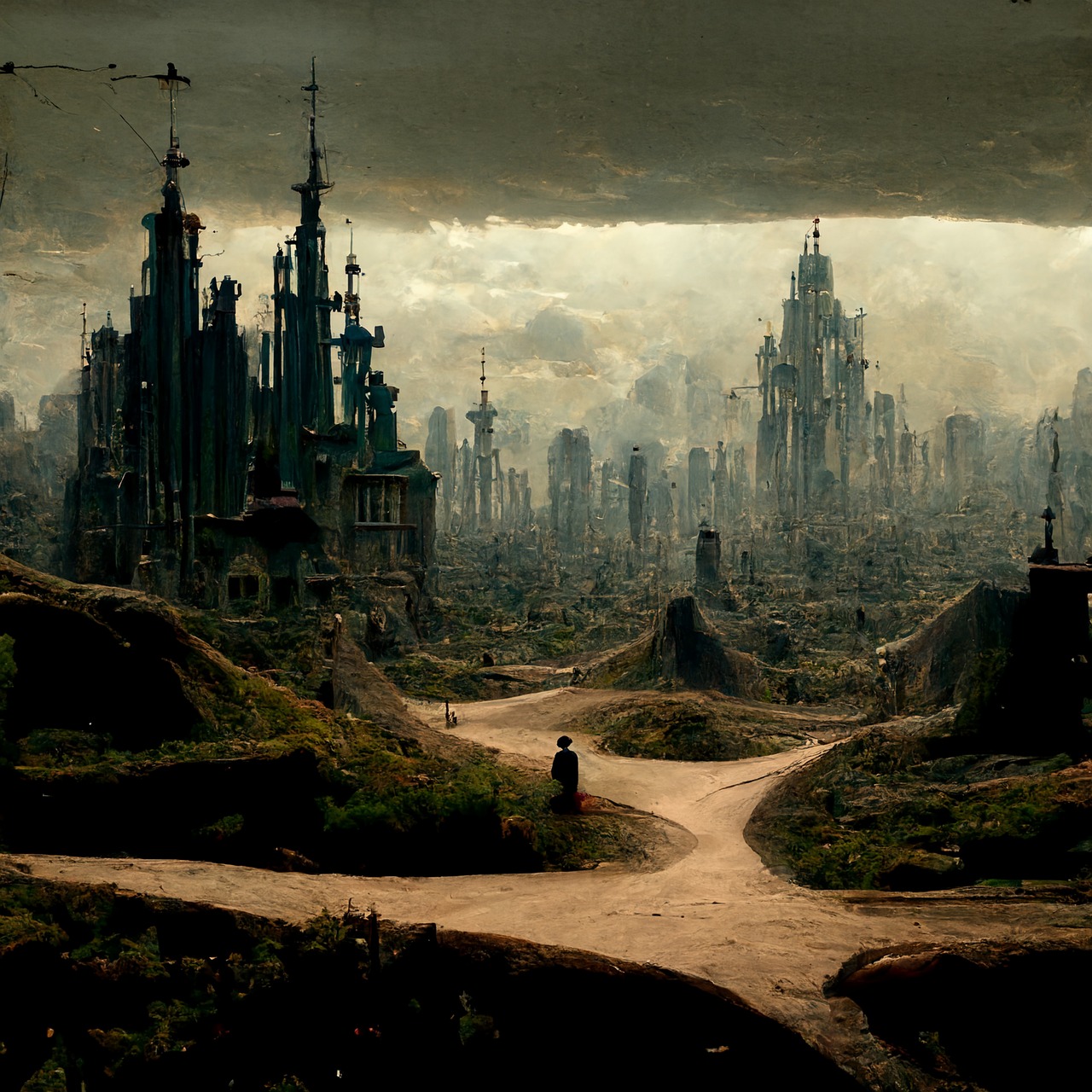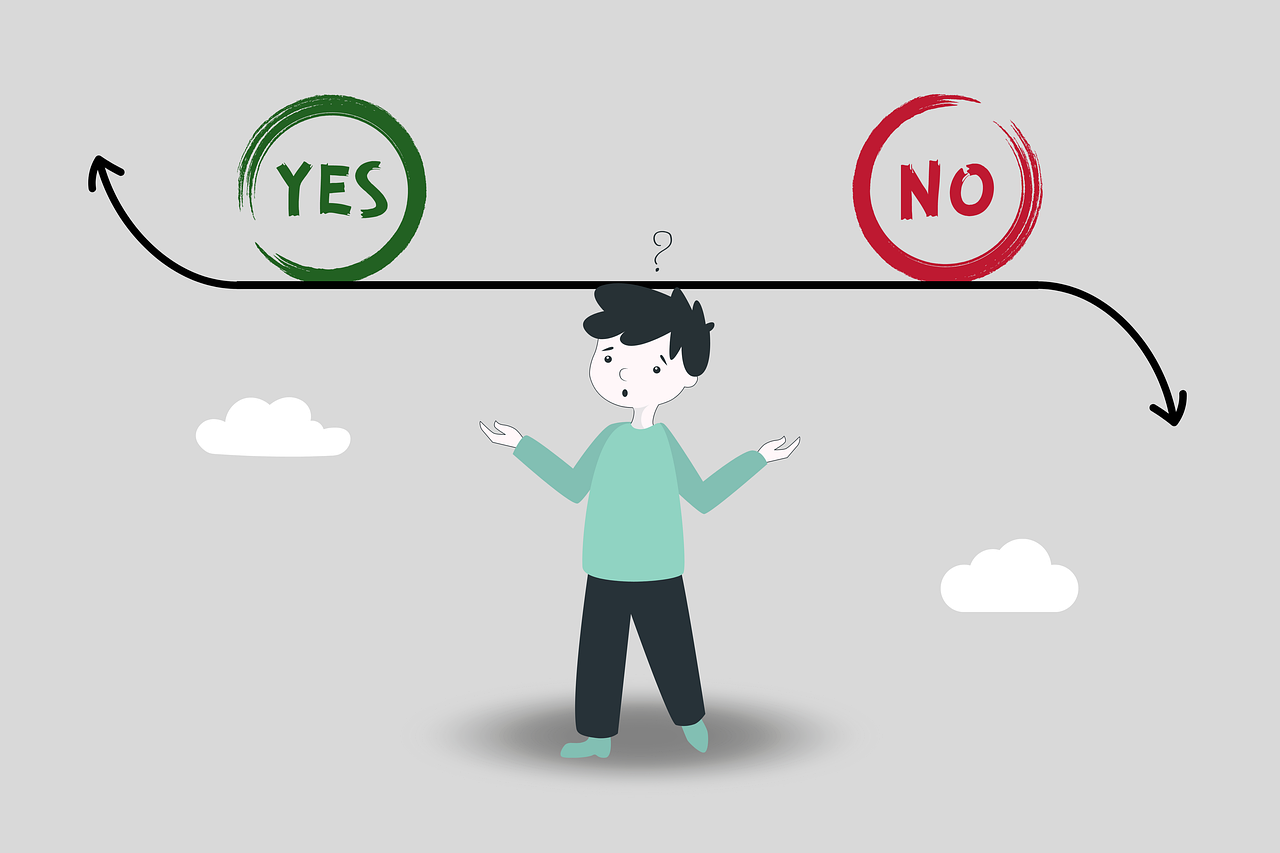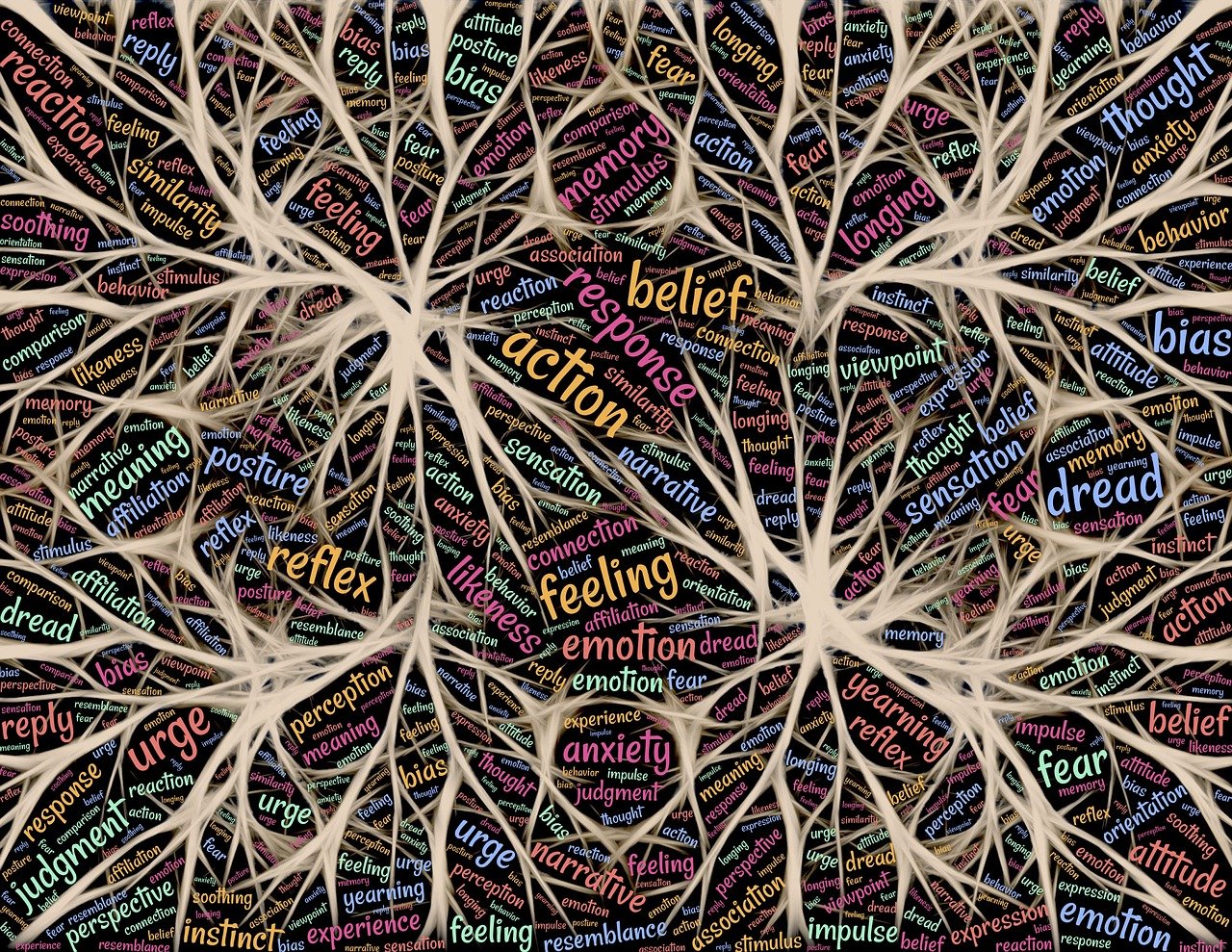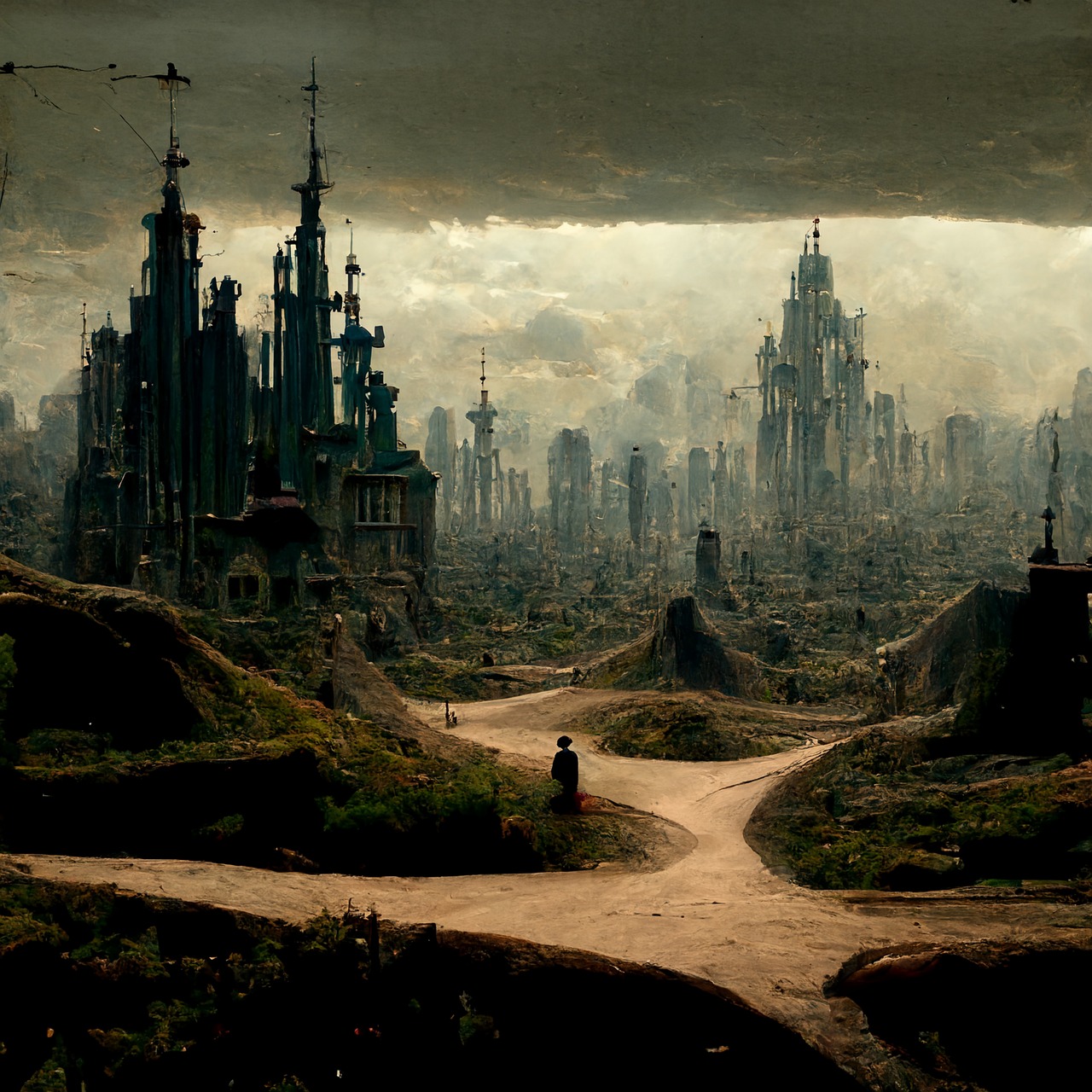Introduction
“Black Mirror,” the anthology series created by Charlie Brooker, has taken the television landscape by storm with its thought-provoking and often unsettling examination of our relationship with technology. In this comprehensive analysis, we delve deep into the world of “Black Mirror” to explore the recurring themes, thought-provoking narratives, and dystopian futures that have captivated audiences worldwide.
The series’ title, “Black Mirror,” itself holds a deeper meaning, reflecting our obsession with screens and the dark reflections of humanity that they can reveal. Each episode serves as a standalone story, offering a unique and self-contained glimpse into possible futures shaped by technological advancements. These stories often blur the lines between science fiction and reality, leaving viewers with a lingering sense of unease and self-reflection.
One of the recurring themes in “Black Mirror” is the exploration of the consequences of our technological choices. From social media addiction and surveillance culture to the ethical dilemmas of artificial intelligence and virtual reality, the series challenges us to confront the potential repercussions of our rapid technological progress. It raises crucial questions about the price of convenience, the erosion of privacy, and the ethical boundaries we must navigate in an increasingly digital world.
“Black Mirror” is also known for its thought-provoking narratives that push the boundaries of storytelling. Each episode presents a moral quandary or a cautionary tale, often leaving viewers with more questions than answers. It’s this ambiguity that fuels discussions and debates long after the credits roll. The show’s ability to make us question our own values and beliefs is a testament to its storytelling prowess.
Dystopian futures are a hallmark of “Black Mirror.” It envisions worlds where technology has spiraled out of control, leading to bleak and unsettling scenarios. These futures serve as cautionary tales, urging us to tread carefully as we navigate the ever-evolving landscape of innovation. From memory-recording implants to AI-driven dating apps and mind-reading devices, the series forces us to confront the darker aspects of our digital desires.
Ultimately, “Black Mirror” is more than just a television series; it’s a mirror held up to society, reflecting our hopes, fears, and the consequences of our choices. As we analyze its episodes and the overarching themes that bind them together, we gain a deeper understanding of the complex relationship between humans and technology. In a world where our lives are increasingly intertwined with screens and algorithms, “Black Mirror” challenges us to consider the price we’re willing to pay for progress and convenience.
Should you desire more in-depth information, it’s available for your perusal on this page: Eliciting Tech Futures Among Black Young Adults: A Case Study of …
A Dark Mirror to Our Reality
“Black Mirror” serves as a dark mirror to our society, reflecting our technological obsessions and their potential consequences.Each episode presents a standalone story, allowing the series to explore various dystopian futures, often not too far removed from our current reality.
“Black Mirror” stands as a thought-provoking mirror reflecting the darker facets of our society’s relationship with technology. This anthology series, known for its brilliant storytelling, delves into the depths of our technological obsessions and the potential consequences they carry. Here are some key aspects that make “Black Mirror” a captivating exploration of our modern world:
Technological Dystopias: With each episode as a self-contained story, “Black Mirror” offers viewers a glimpse into a dystopian future that is uncomfortably close to our own reality. Whether it’s the consequences of social media addiction, the dark side of virtual reality, or the implications of artificial intelligence, the series dissects these themes with chilling precision.
Cultural Commentary: Beyond its technological focus, “Black Mirror” serves as a commentary on the societal and cultural changes brought about by technology. It raises profound questions about the erosion of privacy, the impact of digital surveillance, and the consequences of living in an interconnected world.
Human Vulnerability: The series doesn’t just explore the potential dangers of technology; it also delves into the vulnerabilities of human nature. Each episode places ordinary individuals in extraordinary situations, revealing how they react when faced with the consequences of their actions or the societal pressures exerted upon them.
Moral Dilemmas: “Black Mirror” excels in presenting moral quandaries that challenge viewers’ beliefs and values. It invites audiences to ponder what they would do in the characters’ shoes, often blurring the lines between right and wrong.
Emotional Resonance: While “Black Mirror” is known for its bleak and unsettling narratives, it doesn’t shy away from emotional storytelling. Viewers often become deeply invested in the characters’ journeys, even when the outcomes are disheartening. This emotional engagement adds depth to the series’ impact.
Social Commentary: Beyond its individual episodes, “Black Mirror” contributes to broader social conversations. It prompts discussions about the role of technology in our lives, the ethics of innovation, and the implications of rapid technological advancement.
In essence, “Black Mirror” is more than just a series; it’s a mirror held up to our society, reflecting the consequences of our technological choices and societal shifts. It encourages us to question our relationship with the digital world and serves as a cautionary tale about the path we’re currently treading. As it continues to unveil new episodes, “Black Mirror” remains a poignant reminder of the need for thoughtful consideration of the technologies that shape our future.
You can also read more about this here: Best ‘Black Mirror’ Episodes, Ranked

Technology and Its Impact
The series explores the impact of technology on human behavior, relationships, and society as a whole.Episodes like “Nosedive” and “The Social Dilemma” raise important questions about the role of social media and surveillance in our lives.
Certainly, let’s delve deeper into the exploration of technology’s impact on various aspects of human existence in the series:
Social Media Obsession: Episodes like “Nosedive” vividly depict a world where social media ratings and approval become the currency of social interaction. Through the character of Lacie, viewers witness the extreme lengths people go to in pursuit of validation and the toll it takes on their mental and emotional well-being. This episode serves as a cautionary tale about the dangers of becoming too obsessed with online personas.
Digital Detox: In contrast, episodes like “The Social Dilemma” tackle the broader issue of our dependency on social media and technology platforms. The series prompts viewers to reflect on the addictive nature of these platforms and their ability to manipulate human behavior for profit. It raises important questions about the need for digital detoxification and regaining control over our online lives.
Surveillance and Privacy: “Black Mirror” consistently delves into themes of surveillance and privacy invasion. Episodes like “The Entire History of You” and “Shut Up and Dance” explore the consequences of living in a world where every action can be recorded and scrutinized. They force us to contemplate the trade-offs between convenience and privacy in an increasingly connected world.
Tech-Driven Relationships: The series also examines how technology affects our interpersonal relationships. “Hang the DJ” introduces a dating app that dictates the duration of romantic relationships, raising questions about the role of algorithms in our love lives. It’s a thought-provoking exploration of how technology can both facilitate and complicate human connections.
Ethical Dilemmas: Throughout “Black Mirror,” viewers are confronted with moral and ethical dilemmas arising from technological advancements. Episodes like “White Christmas” and “White Bear” challenge our notions of justice, punishment, and empathy in a world where technology can reshape reality.
In summary, “Black Mirror” is a thought-provoking series that fearlessly explores the multifaceted impact of technology on our lives. Through its episodes, it raises vital questions about the choices we make in a digital age and the consequences of those choices on our behavior, relationships, and society as a whole. It serves as a mirror reflecting the complexities and ethical dilemmas of our modern technological world.
Don’t stop here; you can continue your exploration by following this link for more details: Reviews: Black Mirror – IMDb

Ethical Dilemmas
“Black Mirror” frequently delves into moral and ethical dilemmas, forcing viewers to confront uncomfortable questions.Episodes like “White Bear” and “White Christmas” challenge our notions of justice and punishment.
“Black Mirror” consistently excels at plunging its audience into a world of moral and ethical conundrums, where the boundaries between right and wrong blur into a murky gray. The brilliance of this anthology series lies in its ability to force viewers to confront uncomfortable questions, often leaving them pondering the implications long after the credits roll.
Episodes like “White Bear” and “White Christmas” are prime examples of this thought-provoking storytelling. In “White Bear,” we’re compelled to question the very nature of justice and retribution in a world where punishment becomes a form of public entertainment. It challenges our basic instincts for empathy and compassion, leaving us to ponder whether the punishment truly fits the crime.
“White Christmas” takes us on a journey through the darkest corners of technology and human behavior. It explores the consequences of our actions, both intended and unintended, in a world where digital copies of consciousness can suffer endlessly. This episode forces us to consider the moral implications of our digital footprint and the ethical quandaries surrounding technology’s role in our lives.
In essence, “Black Mirror” serves as a mirror to our own society, reflecting back the complexities and dilemmas we often ignore. It pushes us to confront uncomfortable truths about the world we’re creating and the choices we make. It’s this unwavering commitment to challenging our beliefs and values that makes “Black Mirror” a standout series, leaving us both unsettled and enlightened in its wake.
For additional details, consider exploring the related content available here White Christmas Black Mirror: Themes, Meaning, Ending Explained

The Fear of Losing Control
Many episodes revolve around the theme of losing control, either over one’s life or over technology.The fear of being manipulated or controlled by external forces is a recurring motif.
The fear of losing control, both over one’s life and over the technology that surrounds us, is a central and haunting motif that runs throughout “Black Mirror.” This theme strikes at the core of human anxiety about the consequences of technological advancement.
In several episodes, we witness characters grappling with the loss of autonomy and the unsettling feeling of being manipulated. Whether it’s the insidious influence of social media algorithms that dictate our choices and behaviors, or the disturbing power dynamics in a world where everyone is constantly surveilled, “Black Mirror” masterfully taps into these fears.
One of the most iconic episodes, “Nosedive,” illustrates the perilous consequences of a society governed by a ratings system. In this world, individuals’ worth is determined by their online ratings, which can fluctuate dramatically with every interaction. The relentless pursuit of a high rating leads to an oppressive conformity, where individuals suppress their true selves to fit into society’s expectations. The fear of being judged and ostracized for non-conformity is a chilling reflection of our own obsession with social validation.
The episode “White Christmas” delves into the concept of digital consciousness, where individuals can be replicated and controlled within a confined digital space. The characters’ profound sense of powerlessness in the face of their digital jailers highlights the unsettling notion of losing control over one’s own existence.
“Black Mirror” also explores the darker aspects of advanced technology, such as mind-reading devices that lay bare our innermost thoughts or virtual reality worlds that blur the line between reality and illusion. In these episodes, the characters’ inability to control the technology that surrounds them often leads to devastating consequences.
The series’ ability to tap into these fears is what makes it so compelling and resonant. It forces us to confront our own anxieties about the power of technology and the potential for it to control us rather than the other way around. As we navigate an increasingly interconnected and digitized world, “Black Mirror” serves as a stark reminder of the importance of safeguarding our autonomy and staying vigilant against the loss of control in the face of technological advancement.
To delve further into this matter, we encourage you to check out the additional resources provided here: Black Mirror: 10 technologies we never want to see in real life | EU …

Technological Nightmares
“Black Mirror” presents a variety of technological nightmares, from memory implants in “The Entire History of You” to digital consciousness in “San Junipero.”These episodes explore the consequences of unchecked technological advancement.
“Black Mirror” serves as a masterful storyteller, weaving a tapestry of technological nightmares that haunt our collective imagination. Through its diverse episodes, it fearlessly examines the repercussions of unchecked technological advancement. Here’s a deeper dive into how “Black Mirror” explores these dark corners of innovation:
Memory Implants in “The Entire History of You”: This episode plunges us into a world where individuals can record and replay their memories. While this may seem like a utopian concept at first, it swiftly devolves into a dystopian exploration of how memory manipulation can strain relationships, unravel trust, and lead to an obsession with reliving the past. It underscores how the power to manipulate our own memories can be a double-edged sword.
Digital Consciousness in “San Junipero”: In a stark contrast to many other episodes, “San Junipero” offers a glimmer of hope. It introduces us to a virtual world where consciousness can be uploaded, granting the elderly an opportunity to live in a blissful afterlife. However, beneath this digital paradise lies a profound examination of the nature of existence, the complexities of love, and the moral implications of digital immortality.
Social Media Influence in “Nosedive”: This episode takes aim at our society’s obsession with social media and ratings. It paints a picture of a world where individuals constantly rate each other, and one’s social standing is determined by their online reputation. “Nosedive” explores the consequences of living in a society driven by superficial judgments and the pressures to conform to a curated image of happiness.
Technological Surveillance in “The National Anthem” and “Shut Up and Dance”: These episodes delve into the dark realms of digital surveillance and manipulation. “The National Anthem” scrutinizes the lengths society will go to in order to satisfy its appetite for sensationalism, while “Shut Up and Dance” explores the terrifying consequences of online blackmail and the erosion of personal privacy.
Artificial Intelligence in “Be Right Back” and “White Christmas”: These episodes delve into the intersection of artificial intelligence and human emotions. “Be Right Back” explores the ethical dilemmas of using AI to recreate a lost loved one, while “White Christmas” confronts the disturbing implications of creating sentient digital copies of human consciousness.
In essence, “Black Mirror” is a relentless exploration of the human condition in a digital age. It shatters the boundaries of conventional storytelling, inviting viewers to confront their own fears, desires, and ethical boundaries. Each episode is a cautionary tale, reminding us that while technological advancement holds immense promise, it also carries profound risks that demand our vigilance and moral reflection.
For additional details, consider exploring the related content available here Best ‘Black Mirror’ Episodes, Ranked

The Human Experience
Amidst the dystopian settings and advanced technology, “Black Mirror” often returns to the fundamental aspects of the human experience.Episodes like “Be Right Back” and “Hang the DJ” explore themes of love, loss, and the essence of humanity.
Absolutely, let’s delve deeper into how “Black Mirror” expertly explores the core elements of the human experience amidst its dystopian and technologically advanced backdrop:
Love and Loss: In the episode “Be Right Back,” the series delves into the complex emotions surrounding grief and loss. Through the story of Martha, who uses a technology that recreates her deceased partner Ash’s personality based on his online presence, viewers are taken on an emotional journey that raises questions about the nature of love, attachment, and the lengths we’ll go to in order to hold onto someone we’ve lost.
Exploration of Relationships: “Hang the DJ” presents a unique take on the world of dating and relationships. By depicting a society where individuals’ romantic compatibility is determined by a sophisticated dating app, the episode explores the age-old themes of love, fate, and human connection. It challenges viewers to ponder the role of technology in shaping our love lives and whether it can truly predict the course of a relationship.
Human Resilience: “Black Mirror” often tests the limits of human resilience and adaptability. Episodes like “White Christmas” and “15 Million Merits” present characters who must navigate oppressive and dehumanizing environments. These stories highlight the indomitable spirit of individuals faced with seemingly insurmountable challenges, prompting viewers to reflect on the strength of the human will to survive and seek justice.
Moral and Ethical Dilemmas: While the series frequently explores the dark side of technology, it also places characters in morally and ethically challenging situations. Episodes like “White Bear” force viewers to confront questions of justice, punishment, and the ethics of entertainment. These narratives invite reflection on the moral compass that guides human behavior, even in extreme circumstances.
Identity and Authenticity: “Black Mirror” often probes the concepts of identity and authenticity in a digital age. Episodes like “Fifteen Million Merits” and “USS Callister” question the nature of personal agency and the consequences of living in a world where one’s identity can be manipulated or obscured. These explorations invite viewers to ponder the significance of individuality and the authenticity of the self.
In summary, “Black Mirror” transcends its dystopian and tech-driven narratives to illuminate the timeless aspects of the human experience. Amidst the futuristic settings and advanced gadgets, the series keeps a firm grip on themes such as love, loss, resilience, morality, and identity. It serves as a compelling mirror reflecting not only the potential dangers of technology but also the enduring complexities of what it means to be human.
For a comprehensive look at this subject, we invite you to read more on this dedicated page: Best ‘Black Mirror’ Episodes, Ranked

Lessons for the Future
As we navigate the ever-evolving landscape of technology, “Black Mirror” serves as a cautionary tale.The series encourages us to consider the ethical and societal implications of our technological choices.
In an era defined by rapid technological advancement, “Black Mirror” emerges as a crucial voice of caution and introspection. As we navigate the ever-evolving landscape of technology, the series reminds us that our choices in the digital realm have profound ethical and societal consequences.
“Black Mirror” acts as a mirror reflecting the potential dark sides of innovation, where the very technology designed to improve our lives can also lead to unforeseen pitfalls. Each episode is a cautionary tale, a glimpse into possible dystopian futures driven by unchecked technological advancement.
The series urges us to take a step back and reflect on the choices we make as individuals and as a society. It prompts us to consider the ethical dimensions of our actions, from our online behavior and data sharing to the broader implications of artificial intelligence and surveillance. “Black Mirror” challenges us to confront the moral dilemmas lurking beneath the surface of our tech-driven lives.
In essence, “Black Mirror” serves as a vital reminder that while technology can bring remarkable progress, it also carries profound responsibilities. It encourages us to approach innovation with a critical eye, asking not only what is possible but also what is ethical and just. By heeding these cautionary tales, we can navigate the digital age more thoughtfully and shape a future that is both technologically advanced and ethically sound.
For additional details, consider exploring the related content available here Black Mirror [Episode Discussion] – S06E05 – Demon 79 : r/blackmirror

Conclusion
“Black Mirror” continues to captivate audiences by offering a chilling glimpse into possible dystopian futures. By analyzing our obsession with technology and its potential consequences, the series challenges us to be more mindful of the path we tread. As we move forward in an increasingly digital world, the lessons from “Black Mirror” remain more relevant than ever, serving as a reminder to question, reflect, and consider the impact of our technological choices on our society and ourselves.
“Black Mirror” is not just a series; it’s a thought-provoking mirror reflecting the darkest facets of our relationship with technology. Its ability to imagine dystopian futures, often disturbingly close to our own reality, is a testament to its relevance and impact. As the series continues to captivate audiences, it offers us a chilling yet necessary reminder to be mindful of the path we tread in our digital age.
One of the strengths of “Black Mirror” lies in its ability to extrapolate from current technological trends and societal behaviors. It doesn’t depict far-off, fantastical futures; instead, it presents worlds that feel uncomfortably close to home. This proximity to reality forces us to confront uncomfortable truths about our dependence on technology and the potential consequences of our choices.
In an age where we willingly share our personal data, engage with AI-driven algorithms, and immerse ourselves in virtual worlds, “Black Mirror” serves as a stark cautionary tale. It raises crucial questions about the erosion of privacy, the implications of unchecked surveillance, and the ethical dilemmas surrounding advanced AI. It reminds us that our pursuit of convenience and connectivity can come at a cost—a cost that we may only fully grasp when it’s too late.
As we move forward in a world increasingly defined by technology, “Black Mirror” encourages us to be critical thinkers and responsible digital citizens. It reminds us that we have a choice in how we engage with technology and that our decisions shape the world we inhabit. The series challenges us to question the ethical boundaries of scientific advancement, to consider the moral implications of our actions, and to reflect on the potential consequences of our choices.
Ultimately, “Black Mirror” serves as a mirror reflecting our own digital reflections back at us, urging us to pause and ponder. It encourages us to contemplate the impact of our technological choices on our society, our relationships, and ourselves. In an era where technology evolves at breakneck speed, the lessons from “Black Mirror” remain more relevant than ever, reminding us to tread carefully, to think critically, and to safeguard our humanity in the face of ever-advancing machines.
If you’d like to dive deeper into this subject, there’s more to discover on this page: Every ‘Black Mirror’ Episode, Ranked From Worst to Best | WIRED UK
More links
You can also read more about this here: In a Virus-Stricken Future, Humanity Endures Amid the Grief – The …
